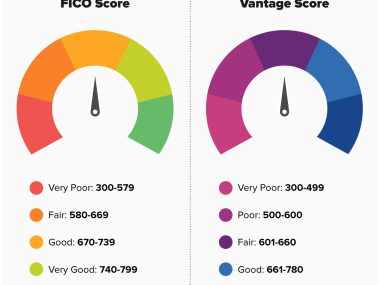How to Understand the Impact of Credit Inquiries on Your Score:
Traversing the realm of credit can often seem like unravelling a mystery. One crucial piece of this puzzle is understanding how credit inquiries impact your credit score. This knowledge is not only fundamental to managing your finances better but also vital to making informed decisions that shape your financial health.
In the ensuing discourse, we shall delve into the intricate dynamics of credit inquiries and their effect on your credit score.
What Is A Credit Inquiry And How Does It Affect My Credit Score?
The moment a lender peruses your credit report to gauge your reliability as a borrower, a credit inquiry is set into motion. This seemingly innocuous check can have ramifications for your overall credit health.
There are two protagonists in this narrative: the hard inquiry, generally stemming from a new credit application, and the soft inquiry, an innocuous spectator that leaves your credit score untouched.
While a hard inquiry may only slightly dock your credit score, encapsulating a risk profile for lenders, an ensemble of these within a brief time frame can deal a heavier blow.
It’s a credit score’s solace that these dents are short-lived, dissolving within twelve months, despite lingering in credit history reports for up to twenty-four months.
- Hard inquiries: May briefly lower your credit score
- Soft inquiries: No impact on your credit score
- Rate Shopping: Multiple inquiries treated as a single one for certain loans
- Temporary Effect: Hard inquiry impact diminishes within a year
While hard inquiries serve as an alert to potential credit expansion, they are only a fleeting concern, provided they are infrequent and spaced out over time.
Can You Explain the Difference Between A Hard Inquiry and A Soft Inquiry?
Distinguishing between a hard inquiry and a soft inquiry is paramount to understanding the impact on your score. The hard inquiry is a consequence of seeking new credit, where each application could nibble at your credit score.
Conversely, the soft inquiry is a benign spectator when you check your credit or when it is reviewed for non-lending purposes, like an employment background check.
Hard inquiries embody a credit-seeking ‘footprint,’ lingering for two years on your report but fading in significance. Meanwhile, several hard inquiries within a brief interlude could cluster together into a single inquiry, a reprieve when questing for the best loan interest rates.
- Hard Inquiry: Recorded during a credit application, potentially lowering the score
- Soft Inquiry: Does not affect score, often occurring during background checks
- Cluster of Inquiries: Multiple similar applications are often counted as one
- Credit Report Monitoring: Essential to identify unauthorised hard inquiries indicating fraud
In essence, while hard inquiries reflect your activity in seeking credit, soft inquiries are silent watchers, never impacting your score.
How Long Do Credit Inquiries Stay On My Report, And How Significantly Do They Impact My Score?
Credit inquiries serve as temporal markers on your credit report, firmly in place for two years, but their influence wanes over time. A hard inquiry, indicative of a quest for new credit, temporarily diminishes your credit eloquence.
Gradually, its significance fades, much like shadows at noon, long before it vacates your report. Soft inquiries, on the other hand, occupy a nebulous space where they register but cast no shadow at all on your credit score.
An oasis in the desert of financial scrutiny, certain loan inquiries congregate over a fortnight to potentially be deemed a singular inquiry, lightening the load on your credit score.
- Duration on Report: Two years for all inquiries
- Hard Inquiry Influence: Minor and transient score decrease
- Soft Inquiry Influence: Absolutely no impact on score
- Loan Inquiries Blending: Searching for loans within a short window simulates a single hard inquiry
The temporal aspects of inquiries highlight the importance of strategic financial planning and patience in credit score recovery.
Is There A Limit To How Many Credit Inquiries I Should Have, And What Could Happen If I Exceed That Number?
An overabundance of hard inquiries can reflect unfavourably upon your financial discretion, narrating a tale of desperation rather than strategy. Diverging into the realm of excess may brand you as high-risk in the discerning eyes of lenders, potentially leading to less attractive loan conditions or denied credit requests.
A heuristic threshold would be to sustain no more than six hard inquiries over a semester’s length to cushion your credit score from substantial distress. Lenders, akin to cautious navigators, chart their courses considering the frequency of your credit inquiries to decide your creditworthiness.
- Signal of Risk: Numerous inquiries may be interpreted as financial instability
- Threshold: Aim to keep hard inquiries under six within six months
- Potential Consequences: Reduction in score, affecting loan terms and credit access
- Non-Impactful Inquiries: Soft inquiries remain neutral in this grand game of credit
In summary, it is wise to keep a vigilant eye on the number of hard inquiries, opting for a conservative approach to applying for new credit.
What Can I Do To Minimize The Impact Of Credit Inquiries On My Credit Score?
Forging a path of minimal resistance regarding credit inquiries requires a judicious approach to credit applications, reserving them for when truly necessary. Bundle similar loan inquiries within a window of two to six weeks to ensure they resonate as a single contemplation on your credit report.
Regular, self-conducted soft inquiries aid in keeping a keen eye on your credit standing without penalising your score.
Cultivating a robust credit portfolio punctuated by consistent payments and varied credit accounts mitigates the fleeting effects of inquiries. It’s a financial ballet—eeach calculated step balancing out momentary imbalances induced by new credit pursuits.
- Sparse Applications: Apply for credit sparingly to avoid unnecessary hard inquiries
- Loan Shopping Window: Condense similar credit searches into a small timeframe
- Personal Credit Checks: Regularly perform soft inquiries for vigilant self-monitoring
- Strong Credit Habits: Timely payments, low utilisation, and varied credit better shield you
The power lies in your hands to sculpt a credit score resilient to the tremors of inquiries.
The Final Score on Inquiries
As we unfurl the scrolls of credit wisdom, understanding the nuances of credit inquiries proves to be an empowered move towards safeguarding our financial health.
Remember, the formula for a robust credit score is a blend of knowledge, planning, and prudent financial behaviors, with inquiries being just smaller notes in the grand symphony of your credit history.
Hold these insights close as you chart the narrative of your financial journey, with each decision echoing in the halls of credit bureaus and the ledger of your life.






